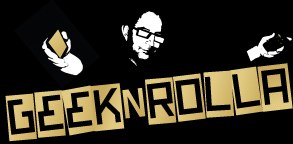It strikes me that digital literacy is becoming more and more important, as more and more of the things we do in life are digitalised.
It helps to understand how computers work if you want to buy some music these days, or watch a film, or read a book.
Not just the physcial act of downloading, and paying, and pressing the buttons to get it to display. But also some kind of knowledge of the companies providing the service, on what terms, and with what motivations.

Howard Rheingold in his book Net Smart outlines five key skills needed for digital success:
- Attention
- Crap detection
- Participation
- Collaboration
- Network smarts
I dare say all those five are required for existing at all in the digital world we are increasingly finding ourselves in, and not just when we are doing what is apparently digital stuff. Even when you’re offline, you need to be thinking through these things.
I’ve been reading a bit of Jaron Lanier‘s stuff lately, which resonate with a few of the folk that read here. He’s a digital visionary, who these days isn’t sure we are headed in the right direction… This from a recent interview with John Naughton (who himself has some interesting perspectives on these issues):
The thing to remember about HTML, though, is that Tim [Berners-Lee] was not trying to redesign the world. He was trying to do a quick thing for a very particular context – a physics lab. The beauty of HTML was that one-way linking made it very simple to spread because you could put something up and take no responsibility whatsoever. And that creates a society in which people display no responsibility whatsoever. That’s the problem…
Societies and cultures become locked on to ideas. The “open culture” idea – which was really just an experimental thought in the 1980s – has now become an orthodoxy with its cadres of adherents. I dearly wish I could make them realise how experimental it was and how we should not treat it as anything sacrosanct.
The idea that there is philosophy behind the tools we are using in an interesting one, and that those philosophies may come to define and change our behaviour because of the tools we decide to use. I do believe that the ability we all have to publish the things we create is incredibly affirming and powerful, and a good thing. But other stuff worries me, such as the fragmentation of culture and identity into tiny pieces, and the way our culture is being handed over to Silicon Valley companies that don’t necessarily have our or society’s best interests at the forefront of their priorities.
Currently this most affects those that create and publish content, although in the near future, as gardens get walls built around them, it will become a bigger and bigger issue for those that consume culture: whether text, books, music, video, whatever. Oftentimes it is making a value judgement between convenience and control – which often correlates to closed and open, respectively.
However, we are where we are. If we are to shape where we will go next, we need the skills and understanding to make the right choices, to protect ourselves both as individuals and as communities. We need to keep our wits about us and our eyes open. But how many people can we really say do, right now?


 Following up on my earlier post on good things to look for in people when you are hiring –
Following up on my earlier post on good things to look for in people when you are hiring –